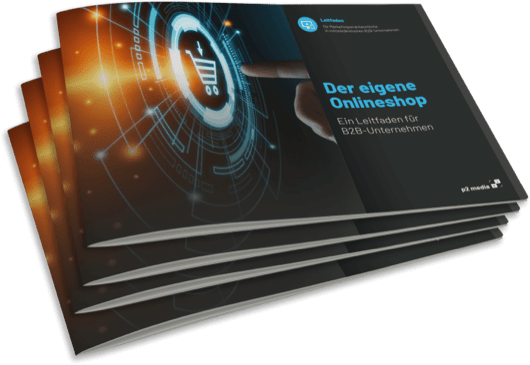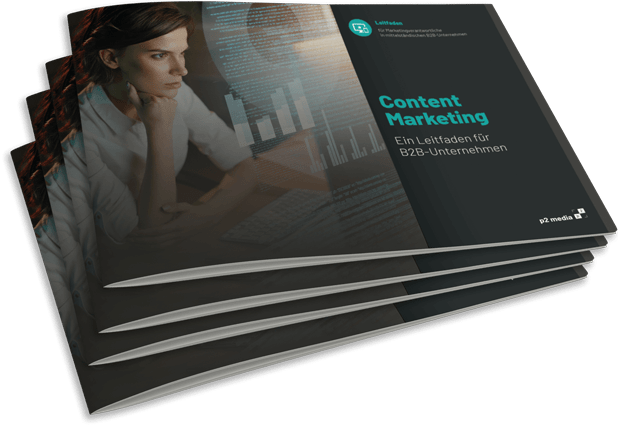As of March 2021, Google has finally stopped crawling desktop websites. From now on, the standard is the mobile-first index.
But what does this mean for your website?
This means that the Google crawl will only consider the mobile versions of websites in the future. For those who don't yet have a mobile-optimized website, or only a rudimentary one, this will undoubtedly mean huge negative SEO. But even those who have geared their online offerings for use with smartphones and tablets should take another close look at the latest now to see if they are optimally positioned for the mobile index crawl.
We have summarized helpful tips that you need for Google Mobile First Indexing or for preparing your website for the mobile conversion for you here!
What is the Google Mobile First Index?
The Mobile First Index is actually not a completely new development by Google. For years, the search engine leader has been pursuing a crawling strategy that basically favors mobile websites.
The complete switch to the mobile index crawl was supposed to take place in September 2020. However, there were problems in testing and also the extraordinary circumstances of the Corona pandemic had a massive impact, so that a new date for March 2021 had to be noted.
As of now, only the mobile variants of websites will finally be considered in the Google Mobile First Index!
Since 2016, Google has been working on converting the entire technology and infrastructure of the search console to mobile-first indexing. The goal is to put the view or the needs of mobile device users at the center of the evaluation when crawling pages. Finally, only the relevance for mobile users will be assessed and Google will rank pages accordingly.
Why does Google change its index?
The reasons for the preference of mobile variants for the ranking are explained relatively quickly. First of all, more and more search queries via mobile devices have been recorded for several years. In some industries, the smartphone and tablet are already well ahead of desktop computers.
For reasons of load time optimization, website operators often provide slightly modified, reduced content in the mobile versions compared to the desktop versions. Therefore, users of Google search via mobile devices sometimes see results that do not provide the desired or required information in the mobile version.
By changing the index, Google can ensure that websites or individual pages are only displayed to mobile searchers if the required facts are actually available.
Furthermore, it can be assumed that the Google search engine wants to make its own procedures more efficient. It is to be considered that the web grows inexorably and already now an unbelievable employment of resources is necessary, in order to index new pages fast and for the users of the search engine maximally advantageously.
To focus here on the - sooner or later clearly dominating - mobile search or mobile optimized website versions means an immense economization.
What impact does the Google Mobile First Index
have on mobile SEO?
Since the changeover to the Mobile First Index has been on the horizon for a long time and many website operators already have responsive websites due to the increasing number of mobile accesses, which are automatically output on mobile devices at least in layout and function, the future exclusive consideration of mobile versions for the SEO Google ranking should not cause any major problems in many places.
Nevertheless, it makes sense to check your own requirements more closely now and, if necessary, to react early. You should definitely consider the following SEO factors in connection with mobile-only Google crawling:
- If you own a website with vastly different versions for mobile and desktop use, the focus should be on the former.
- If your website is not yet mobile-optimized or only rudimentarily mobile-optimized, its ranking is likely to deteriorate massively.
- An optimally mobile-functioning website will most likely help your online offers to achieve significantly better organic visibility.
Which crawler does Google use to visit your website?
In the transitional phase of moving to the mobile-first index, your website may still be considered by the Google crawl for desktop devices. Knowing this provides you with important insight for your future mobile SEO direction.
You can assume, if you are still using the desktop crawler, that you need to realign your mobile SEO. Because otherwise, Google would probably already be crawling mobile at your site.
Is it possible to disable the Google Mobile First Index?
The mobile SEO of a website is not a simple undertaking. Not infrequently, even a complete relaunch must be carried out in order to create really good conditions for usability on mobile devices and thus for the Google Mobile First Index.
Consequently, many website operators would like to be exempt from the changeover and have their online offers rank via the desktop index instead of mobile indexing in the future. However, this is not possible.
This means that if you want your website to hold an advantageous position in SEO Google's rankings in the future - and you should, in order to be able to compete on the market in the long term - you must ensure that it functions optimally on mobile devices all round.
Tips for better rankings in the Mobile First Index
For an ideal encounter of the new crawling situation, it is important that you are familiar with the most relevant facts.
We've laid a good foundation in the previous sections. At this point, you know how the Google Mobile First Index potentially affects the organic visibility of your website and that an examination of your own prerequisites is always appropriate.
The following is specifically about showing how to basically prepare your website well for the transition. "Basically" because there are actually many more factors to consider for comprehensive mobile SEO, but they can't be covered in detail here.
Primarily, it is of course extremely advantageous to know whether your own website is already listed in the mobile first index or is visited by the mobile googlebot or not. Here arise - as already stated above - important indications for mobile SEO.
If your website has already been mobile indexed, you may have received a corresponding notification within the Google Search Console. However, a check can also be done without such a notice and only takes a few minutes:
Enter your domain in the "URL Inspection" section of Search Console, click on "Mobile Usability" and you'll see how Google is doing with your pages.
If you find "Page is mobile friendly" and "Crawled successfully...", you know that Google is crawling the mobile variant. At the same time, this means that your website meets at least the basic requirements for inclusion in mobile indexing. How well it is positioned in this regard, however, cannot be seen here.
Google itself offers a test tool for checking the mobile-friendliness of pages. The tool with the appropriate name "Tool to test for SEO for mobile devices" you use like the Search Console simply via a conventional browser.
Insert the URL to be tested on the tool's page - and after a short analysis time, you can track in detail how the respective page performs. Especially the crawling errors or the concretely displayed problems you should of course take a close look at and react to.
In addition to the Google tool, there are many other solutions for checking the quality of mobile SEO on the web. A very powerful helper is the Searchmetrics Research Cloud.
For years, Google has been highlighting the many benefits of responsive websites, where the layout and design, and optimally also the functionalities, automatically adapt to the screen size of the respective device used.
This favoritism should be reason enough to recognize that Responsive designed websites are favored by the search engine prime and thus - if implemented ideally - are likely to provide ranking advantages. Since Responsive websites only have one source code for the same content on different devices, crawling is made particularly easy for Google here.
Google advises against a subdomain for a separate mobile website, which was popular in the early years of the mobile internet. Webmasters who proceed with a corresponding conversion to mobile do not have to overturn everything in a hurry - Google continues to crawl such separate mobile domains and also supports dynamic serving.
However, it can't hurt to look into switching to responsive design in the long run. In all likelihood, this is the only way to continue effective SEO for mobile.
In quite a few companies, different content for portable devices and desktop devices is still used in the context of mobile optimization of the website.
One would like to provide visitors with a better user experience by reducing content on smartphones and tablets, but often achieves the opposite, as the information content can suffer greatly.
One solution to this problem that has been popular up to now is to hide more extensive content within accordion tabs or slide-outs. However, this content will no longer be used for ranking purposes in the future.
Google advises to make all content in all page versions consistent for all devices. In addition, meta information, structured data, images, videos and links should also be consistent.
The official elevation of Page Speed to Google's ranking factors and the Mobile First Index are actually very closely related. In particular, it was the sharp rise in mobile searches and the associated fact that portable devices were more often at a disadvantage when displaying websites that led to the Google Speed Update.
Smartphones and tablets have lower performance compared to desktops. In addition, the mobile available internet bandwidths are sometimes significantly worse than those in the home or corporate network. Both of these factors mean that more comprehensive websites consistently perform worse on mobile devices than on desktop computers.
That should soon be history. Of course, mobile devices are becoming more and more powerful and the mobile web will also receive an enormous push in the near future, which will eventually eliminate the corresponding deficits. However, it is also the page speed, which as a ranking factor and strengthened by the Mobile First Index, strongly contributes to the fact that more and more Internet presences function ideally on portable devices. Otherwise their ranking will drop and the companies concerned will have to accept considerable losses - and of course nobody wants to afford that (;
As a result, Page Speed and optimization for this ranking factor have a very special relevance in connection with Google Mobile First Indexing. Google PageSpeed Insights offers itself as a starting point for corresponding measures. The tool shows you exactly what you should improve in order to increase the loading time. In conjunction with Google Lighthouse, you can even raise the quality of your website as a whole very precisely.
Conclusion
How much work the complete conversion to the Mobile First Index ultimately means for you depends on your current requirements.
It gets tricky if your website is not mobile optimized at all or hardly at all. However, most companies already have a solid basis, but it is important to check it again carefully in any case to avoid unpleasant surprises. An advantage for those who are not optimally positioned so far is that Google does not set a fixed deadline by which all websites must be mobile-optimized. There is a certain grace period.
Nevertheless, it is recommended to all those who have not yet dealt with Google Mobile First Indexing in the context of their own website to do so immediately.
Our support around the topic of search engine marketing
- Analysis of how you perform from the perspective of the search engine and what reputation your pages have.
- Development of anSEO strategy for your website or online shop.
- SEO site check as a status analysis to uncover technical errors and create a basis for necessary onpage optimizations.
- SEO-compliant text creation- conception of content that is classified as relevant by both your target groups and the search engine.
For holistic and successful online marketing, we are also happy to take care of the following topics:
Oliver Parrizas will be happy to answer any questions you may have on the subject. +49-800-911-91-91













